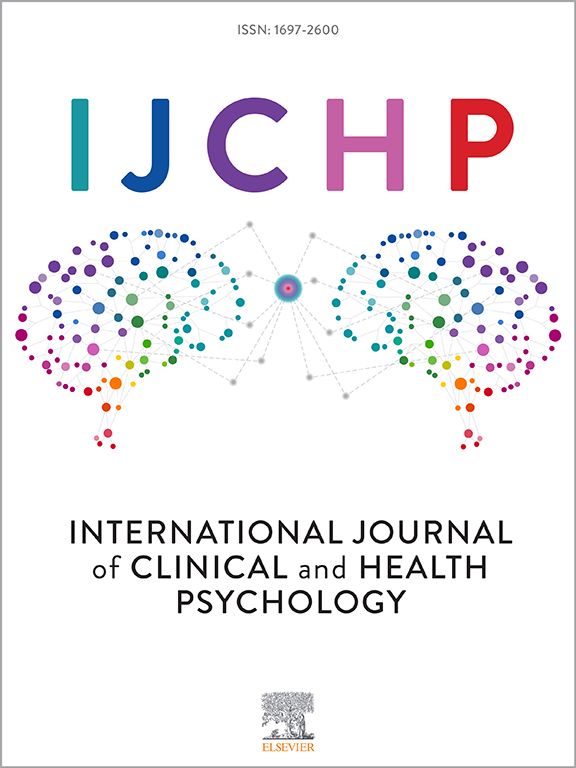厌倦战争:以色列-哈马斯战争后以色列平民睡眠的变化
IF 4.4
1区 心理学
Q1 PSYCHOLOGY, CLINICAL
International Journal of Clinical and Health Psychology
Pub Date : 2025-06-16
DOI:10.1016/j.ijchp.2025.100596
引用次数: 0
摘要
研究目标战争深刻地影响着人类生活的各个方面。战争对睡眠的影响主要是在直接接触战斗的军事人员中研究的。目前的工作研究了战争后平民睡眠模式的变化,评估了2023-2024年以色列-哈马斯战争之前和期间的睡眠。方法研究1通过分析2023年以色列中央统计局调查(N = 6474)的数据,比较战争前和战争期间的全国失眠患病率。研究2和研究3通过有效的工具全面评估了战前和战争后2-3个月的睡眠报告,并测量了心理困扰和人口统计数据。这些研究包括两个独立的样本(N = 1,706),其中一个是以色列人口的代表。研究4重新调查了研究3六个月后的代表性样本(N = 273)。结果在研究1中,失眠症状的发生率在战争期间明显上升。在研究2和3中,参与者报告睡眠不足的患病率增加了19- 22% (<;6小时/晚),临床失眠症增加了16- 19%,与战前相比,睡眠药物的使用增加了4- 5%。在研究4中,战争开始6个月后,尽管心理困扰减轻了,但大多数睡眠障碍仍然存在。在所有的研究中,女性和受创伤影响更大的人受到的影响更大。四项研究的结果证明了战争对平民睡眠的有害影响,表明这些影响可能是持久的。这些发现确定了睡眠问题的前兆,并强调了睡眠、创伤和心理困扰之间的关系。当前的知识战争是一件影响深远的大事,它改变了许多人的生活。战争对人们睡眠的影响主要是在战斗暴露的军事人员中研究的。战争如何影响平民的睡眠模式?这项全面的基于人口的研究于2023-2024年在以色列-哈马斯战争之前和期间进行,发现以色列平民的临床失眠增加,睡眠时间显着减少,睡眠药物的使用增加,并伴有高度的心理困扰。对睡眠的影响持续到战争结束的6个月。受创伤影响较大的女性和个人的睡眠受到的影响尤其严重。这些发现呼吁在与战争有关的创伤和心理困扰的背景下进行针对睡眠的干预。本文章由计算机程序翻译,如有差异,请以英文原文为准。
Tired of war: Changes in the sleep of the Israeli civilian population in the wake of the Israel-Hamas war
Study Objectives
War profoundly impacts various aspects of human life. The effects of war on sleep have been mainly studied among military personnel who are directly exposed to combat. The present work studies changes in sleep patterns of the civilian population following a war, assessing sleep before and during the 2023-2024 Israel–Hamas war.
Methods
Study 1 compared the national prevalence of insomnia before and during the war by analyzing data from the 2023 Israeli Central Bureau of Statistics survey (N = 6,474). Studies 2 and 3 comprehensively assessed reports on sleep before the war and 2-3 months into the war through validated tools, and also measured psychological distress and demographics. These studies included two independent samples (N = 1,706), one of which was representative of the Israeli population. Study 4 re-surveyed the representative sample of Study 3 six months into the war (N = 273).
Results
In Study 1, the incidence of insomnia symptoms rose markedly during the war. In Studies 2 and 3, participants reported a 19-22 % increase in the prevalence of short sleep (< 6 hours/night), a 16-19 % increase in clinical insomnia, and a 4-5 % increase in sleep medication usage compared to before the war. In Study 4, 6 months into the war, the majority of sleep impairments persisted despite reduced psychological distress. Across studies, women and individuals with greater exposure to trauma were more strongly affected.
Conclusions
The findings of four studies demonstrate the detrimental effects of warfare on civilians’ sleep, indicating that these effects are likely long-lasting. The findings identify precursors for sleep problems and underscore the relationships between sleep, trauma, and psychological distress.
Brief Summary
Current knowledge
War is an event of profound magnitude that alters the lives of many. The effects of war on people’s sleep have been mainly studied among combat-exposed military personnel. How does war impact the sleep patterns of the civilian population?
Study Impact
This comprehensive population-based study, conducted in 2023-2024 before and during the Israel–Hamas war, found that the Israeli civilian population experienced increased clinical insomnia, a significant reduction in sleep duration, and greater use of sleep medications, accompanied by high levels of psychological distress. The effects on sleep persisted 6 months into the war. The sleep of women and individuals with greater exposure to trauma was particularly affected. These findings call for sleep-targeted interventions in the context of war-related trauma and psychological distress.
求助全文
通过发布文献求助,成功后即可免费获取论文全文。
去求助
来源期刊

International Journal of Clinical and Health Psychology
PSYCHOLOGY, CLINICAL-
CiteScore
10.70
自引率
5.70%
发文量
38
审稿时长
33 days
期刊介绍:
The International Journal of Clinical and Health Psychology is dedicated to publishing manuscripts with a strong emphasis on both basic and applied research, encompassing experimental, clinical, and theoretical contributions that advance the fields of Clinical and Health Psychology. With a focus on four core domains—clinical psychology and psychotherapy, psychopathology, health psychology, and clinical neurosciences—the IJCHP seeks to provide a comprehensive platform for scholarly discourse and innovation. The journal accepts Original Articles (empirical studies) and Review Articles. Manuscripts submitted to IJCHP should be original and not previously published or under consideration elsewhere. All signing authors must unanimously agree on the submitted version of the manuscript. By submitting their work, authors agree to transfer their copyrights to the Journal for the duration of the editorial process.
 求助内容:
求助内容: 应助结果提醒方式:
应助结果提醒方式:


